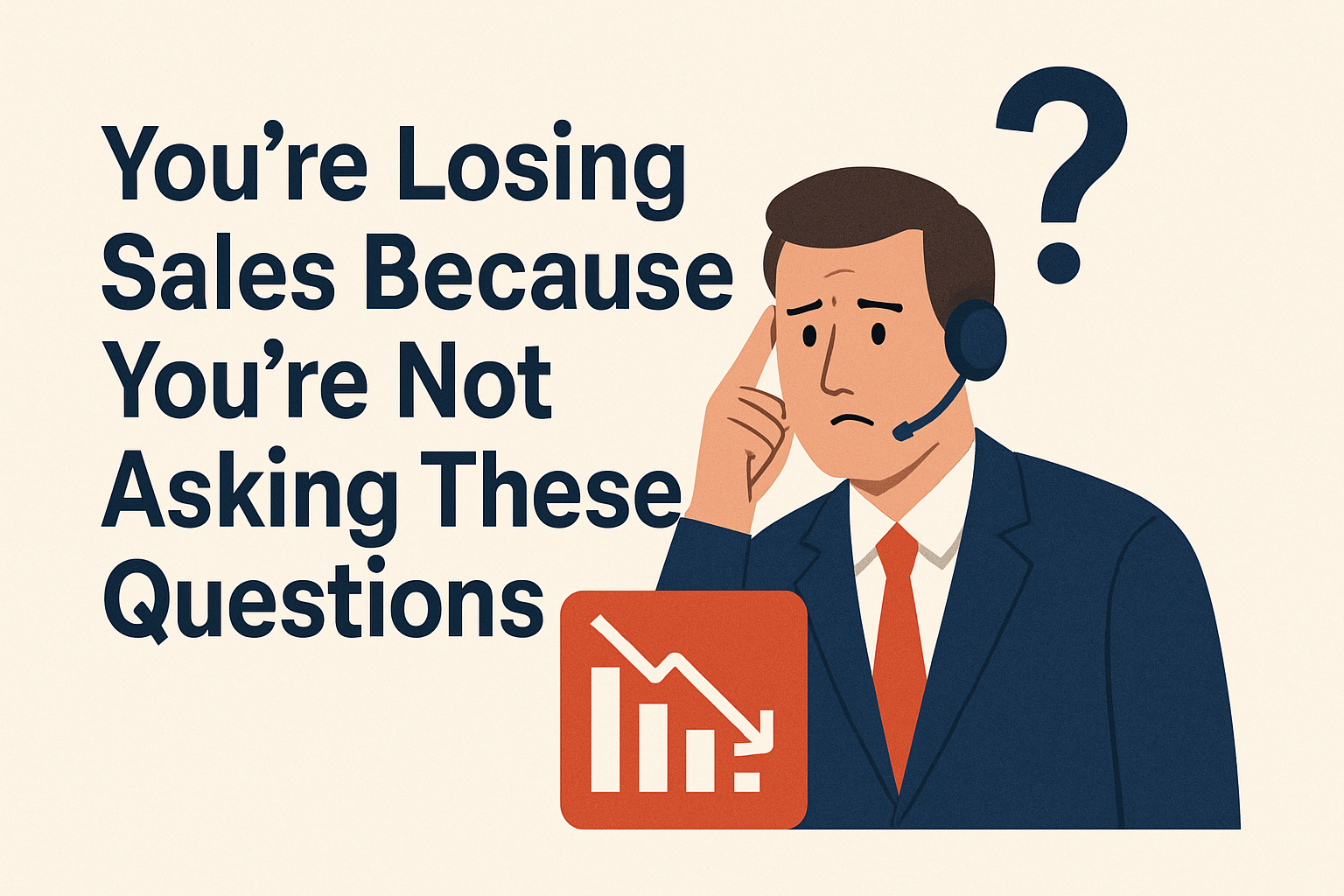
You’re doing the work—prospecting, pitching, following up. You’ve got a solid product or service, you know your stuff, and yet… the deals keep stalling. Or worse, disappearing completely.
It’s not your hustle. It’s not your product.
It’s the questions you’re not asking.
Most salespeople spend way too much time talking and not nearly enough time digging into what actually matters to the buyer. And that’s where deals go to die—in the shallow end of the sales conversation.
At the KONA Group, we believe in flipping that.
Here are a few killer questions that we’ve seen top performers ask—and why they work.
💡 1. “What’s really driving this decision for you right now?”
This question gets straight to the point. You’re not just asking about features or budgets—you’re getting into motivation. Is it urgency? Cost pressure? Fear of falling behind the competition?
Why it works: People buy emotionally and justify logically. This gets right to the emotion.
🔍 2. “If nothing changes, what happens?”
AKA: What’s the cost of doing nothing?
Why it works: It forces the buyer to consider risk—and lets you position your offer as the solution before they even ask for it.

🎯 3. “What does success really look like to you?”
Here’s the truth: Their definition of success might be wildly different from yours.
Why it works: It gives you a custom blueprint to tailor your pitch. Now you’re not selling a product—you’re delivering an outcome they actually care about.
🚫 4. “What’s stopped you from solving this before?”
This one’s a gem. It uncovers roadblocks, hesitations, or internal politics that have killed past attempts.
Why it works: You’re not just selling—you’re strategizing with them. And that builds trust.
🤐 5. “Who else needs to be in this conversation?”
You can have the best sales convo of your life, but if the decision-maker isn’t in the room, you’re wasting time.
Why it works: It surfaces influencers and gatekeepers early—before they become deal-breakers.

So… How Many of These Are You Using?
If your sales conversations aren’t revealing the real story behind a buyer’s decision, you’re flying blind.
And that’s where we come in.
At KONA Group, we don’t do cookie-cutter training.
We tailor sales training to your team, your market, and your goals. Whether you’re chasing bigger deals, shorter sales cycles, or better close rates, we’ll show you how to ask the right questions—and turn conversations into conversions.
Ready to stop guessing and start closing?
Contact KONA today for tailored sales training that actually moves the needle.
Call us on 1300 611 288 or email info@kona.com.au








































































































